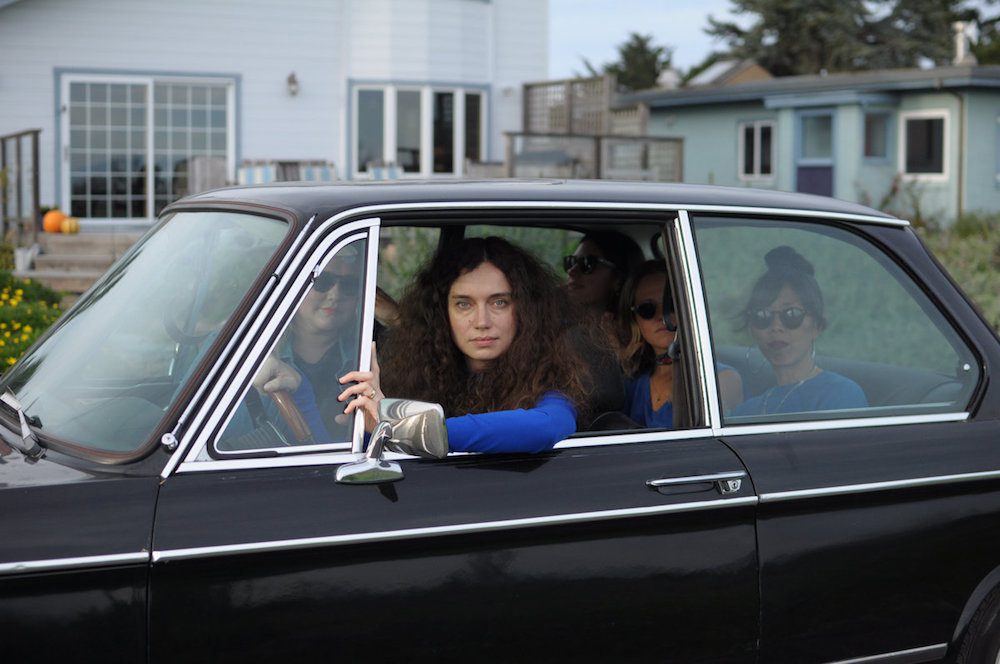July Debuts with Delicate, 60s-Inspired Self-Titled LP


San Francisco’s Kate Sweeney has returned with a new LP after a period of brief hibernation from indie folk band Magic Magic Roses. This time, she emerges with a new moniker, July, but a similar attitude.
The self-titled LP is the epitome of dreamy and delicate with its no-caps titles and bare-bones production. The LP could have slipped into bedroom-pop twee real fast, but Sweeney, who has been releasing music since 2010, brings a maturity to the tracks that are apparent in her vocals most of all. DIY can be great, of course, but sometimes, the music can succumb to the aesthetic. Sweeney, thankfully, knows when to hold back — which, in an album like this, is most of the time — and when to let the cracks show.
The EP starts out strong with “twenty one,” one of the more guitar-heavy songs. The lyrics are simple but effective; “turn on the music/just dance through it” is the main refrain of the chorus. Untethered from the song, some of the most prominent lyrics can seem rather vague, but all strung together and supported by a waterfall early-70s style guitar riff, they manage to paint an effective picture. Purposeful simplicity is the key to July’s success — it’s all been carefully crafted, lending the LP some needed sophistication despite its homemade construction. Though its simplicity may stem from quarantine’s restraints, I have a feeling this was still, largely, the sort of album Sweeney wanted to make.
Track four, “mountains of time,’ is irrevocably sweet, a testament to the positive influence of a partner or friend. “Sometimes when I look at you I think I’m the lucky one/sometimes I think I blew it,” Sweeney sings. “I have wasted so much time/I have wasted mountains of time.” It is by far the most effective song on the album, braiding Sweeney’s thoughtful voice with some equally delicate guitar work. The plaintive lyrics really shine here, employing some summer-of-love style esoterica in a way that does not seem so steeped in the past that it is more of a creative exercise than an album. Overall, July avoids this pitfall, but some the the later songs on the album fall into vagueness, especially when contrasted with “mountains” and “twenty one.”
“lalala,” as its title suggests, is somewhat of a ramble, with no real chorus except the title refrain. What passes for the verses is strong — reflections on a long-term relationship — but the song is too short to sustain impact when the chorus sounds like a demo for which Sweeney forgot to write lyrics. It’s still pleasant, but definitely sounds like it’s missing something with such noncommittal syllables standing acting as placeholder where there could’ve been more depth.
“young” feels a bit meandering as well, mainly due to some chant-like repetition of Sweeney’s favored nature metaphors: “when we were young we were so green/fields, flowers and tall trees” is one of many. It pulls itself together in the middle, however, by putting that repetition to better use with “when we were young we could begin and begin and begin.” It’s a haunting, spell-like refrain, but the rest of it is a little too funereal.
And yet, everything that didn’t work in “young” works on album closer, “set it down,” another flower-circle folk chant. This one really leans in by dropping most of the extensive metaphors and adding in some layered vocals to lead us out on this: “soon the flowers will grow and spread/and cover over everything.”
Overall, the album deserves more than one listen to catch Sweeney’s careful vocal inflections and touching lyrics, and even the songs that didn’t resonate as much for me are still consistent in style and tone. Whether you are a vintage folk aficionado or not, something this soft and reverent is a great lead in to these incoming dark days, when we may need a little reminder of July.




